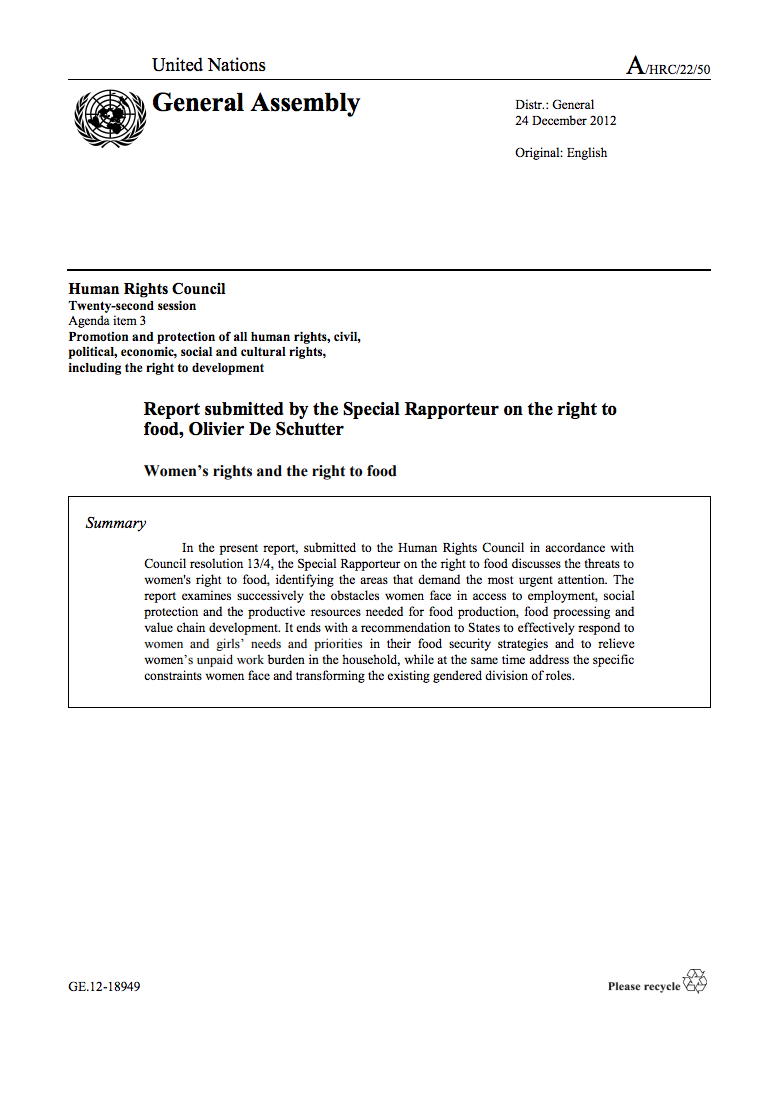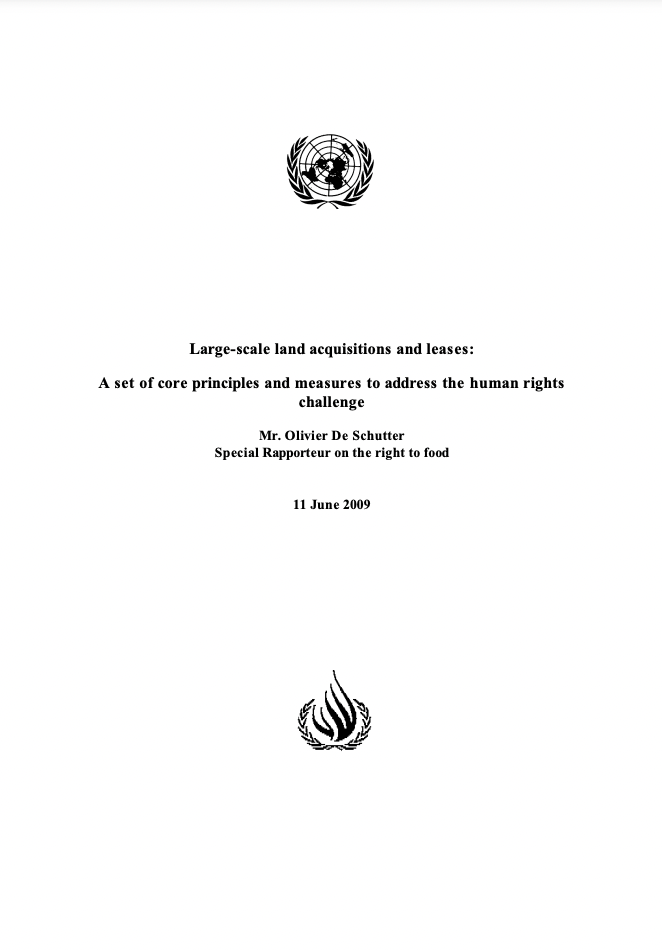Special Rapporteur on the right to food
The Special Rapporteur is an independent expert appointed by the Human Rights Council to examine and report back on a country situation or a specific human rights theme. This position is honorary and the expert is not a staff of the United Nations nor paid for his/her work.
Since 1979, special mechanisms have been created by the United Nations to examine specific country situations or themes from a human rights perspective. The United Nations Commission on Human Rights, replaced by the Human Rights Council in June 2006, has mandated experts to study particular human rights issues. These experts constitute what are known as the United Nations human rights mechanisms or mandates, or the system of special procedures.
The human right to food
For the Special Rapporteur, the right to food is the right to have regular, permanent and unrestricted access, either directly or by means of financial purchases, to quantitatively and qualitatively adequate and sufficient food corresponding to the cultural traditions of the people to which the consumer belongs, and which ensure a physical and mental, individual and collective, fulfilling and dignified life free of fear.
This definition is in line with the core elements of the right to food as defined by General Comment No. 12 of the United Nations Committee on Economic, Social and Cultural Rights (the body in charge of monitoring the implementation of the International Covenant on Economic, Social and Cultural Rights in those states which are party to it). The Committee declared that “the right to adequate food is realized when every man, woman and child, alone or in community with others, has physical and economic access at all times to adequate food or means for its procurement. The right to adequate food shall therefore not be interpreted in a narrow or restrictive sense which equates it with a minimum package of calories, proteins and other specific nutrients. The right to adequate food will have to be realized progressively. However, States have a core obligation to take the necessary action to mitigate and alleviate hunger even in times of natural or other disasters.
Members:
Resources
Displaying 1 - 2 of 2Women’s Rights and the Right to Food
In the present report, submitted to the Human Rights Council in accordance with Council resolution 13/4, the Special Rapporteur on the right to food discusses the threats to women's right to food, identifying the areas that demand the most urgent attention. The report examines successively the obstacles women face in access to employment, social protection and the productive resources needed for food production, food processing and value chain development.
Large-scale land acquisitions and leases: A set of core principles and measures to address the human rights challenge
In the present report the Special Rapporteur on the Right to Food analyses how these investments could have impacts on the right to food.



